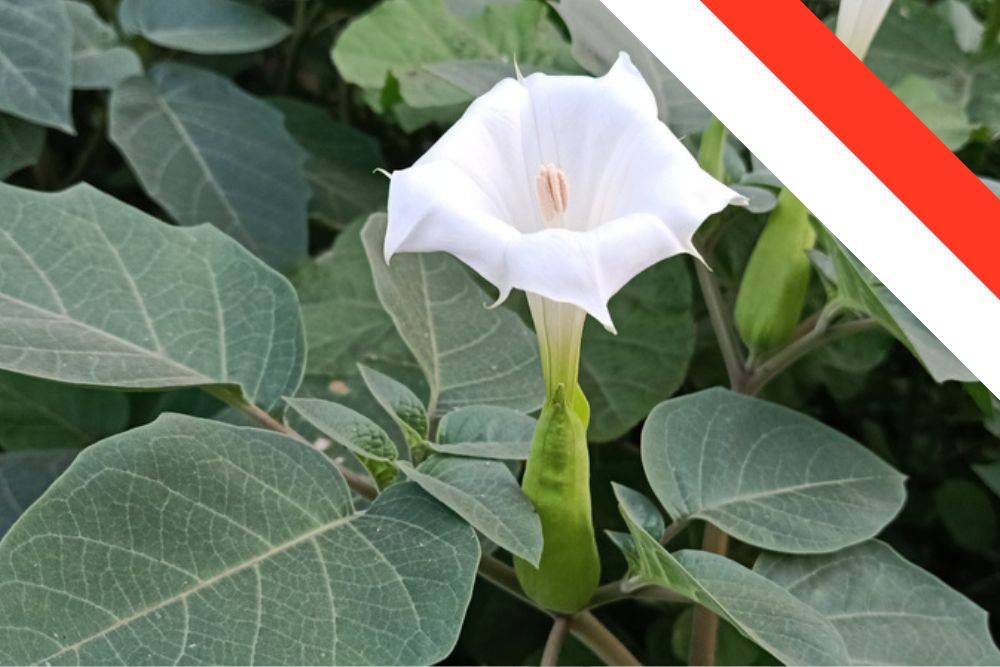When mysterious white pills were circulating in South Kalimantan, no one expected that dozens of people would end up in hospital with Datura poisoning.
This shocking incident sparked widespread panic and concern over the dangers of consuming drugs of unknown origin.
The Beginning of the Incident
The incident began when several people in South Kalimantan consumed white pills that they had obtained from an unknown source. They did not realise that the pills contained a dangerous substance from the Datura plant, or Datura stramonium.
On the first day, some people started showing strange symptoms, such as slurred speech and uncontrollable movements.
The next day, the number of victims increased rapidly. Symptoms became more severe, including seizures and loss of consciousness. The local community panicked and immediately reported the incident to the authorities.
BNN Action
The National Narcotics Agency (BNN) responded immediately by sending a team to conduct a thorough investigation. The victim’s blood sample was sent to the laboratory for analysis. The results showed that the pills contained a substance from the Datura plant that had strong psychotropic effects. This discovery revealed the huge risks faced by people who unknowingly consume such dangerous substances.
Health Effects of Datura Intoxication
Datura poisoning can cause a range of serious symptoms in the body as the plant contains harmful alkaloids such as scopolamine, atropine and hiosiamine. Here are some of the common symptoms experienced by victims:
- Visual and Auditory Hallucinations: Victims may see and hear things that do not exist. These hallucinations can be very disturbing and affect the victim’s ability to interact with their surroundings.
- Dry Mouth: Impaired saliva production can lead to dry mouth. Subsequently, it is uncomfortable and difficult to swallow food or drinks.
- Red Eyes: Damage to eye tissue can cause red and uncomfortable eyes. This can affect the victim’s ability to see clearly and perform daily activities.
- Coordination Disorder: Datura poisoning can also cause serious coordination disorders, making it difficult for victims to walk, talk and perform daily tasks.
- Irregular Heartbeat: Another complication is an irregular heartbeat. Consequently, this can lead to loss of consciousness and seizures in some cases.
Preventive Measures
To prevent similar incidents in the future, the public is urged to avoid consuming wild plants or medicines without clear origins. Education about the dangers of consuming unknown substances needs to be improved. The government and health organisations should work together to provide appropriate information that is easily understood by the public.
Government Efforts and Community Roles
The Indonesian government, through the National Narcotics Agency (BNN) and the Ministry of Health, is very active in educating the public about the dangers of toxic plants and illegal drugs. Socialisation and health education programmes are conducted regularly to raise public awareness. The public is also encouraged to report suspicious incidents related to toxic drugs or plants to the authorities. Collaboration between the government, health institutions, and the public is essential to reduce the risk of similar incidents in the future.
Uses in History
The Datura plant has long been used in traditional medicine and spiritual rituals across various cultures. In Asia, Datura is often used in very controlled doses and under close supervision to treat various ailments. However, its use should be done with extreme caution due to high health risks. Here are some things to consider:
- Potential Toxicity: Daturacontains alkaloids such as atropine, hiosiamine, and scopolamine which can cause irreversible damage to the central nervous system and other vital organs if taken in improper doses.
- Side Effects: The use of Datura can lead to dangerous side effects, such as hallucinations, heart rate disturbances, and even death.
- Medical Surveillance: Due to its high potential toxicity, the use of Datura should be done under strict medical supervision. Misuse of this plant can be fatal and cause serious health effects.
Potential Hazards
The use of Datura in the modern medical world is very limited due to its high potential toxicity. Alkaloids in Datura, such as atropine, hiosiamine, and scopolamine, can cause irreversible damage to the central nervous system and other vital organs if taken in improper doses. Therefore, Datura should not be used without strict medical supervision. Misuse of this plant, as happened in the incident in South Kalimantan, can be fatal and cause serious health impacts.
Have a pressing question for a doctor? Medical Channel Asia has launched a community forum page where you can get questions answered by a medical specialist. Visit the community forum here.

